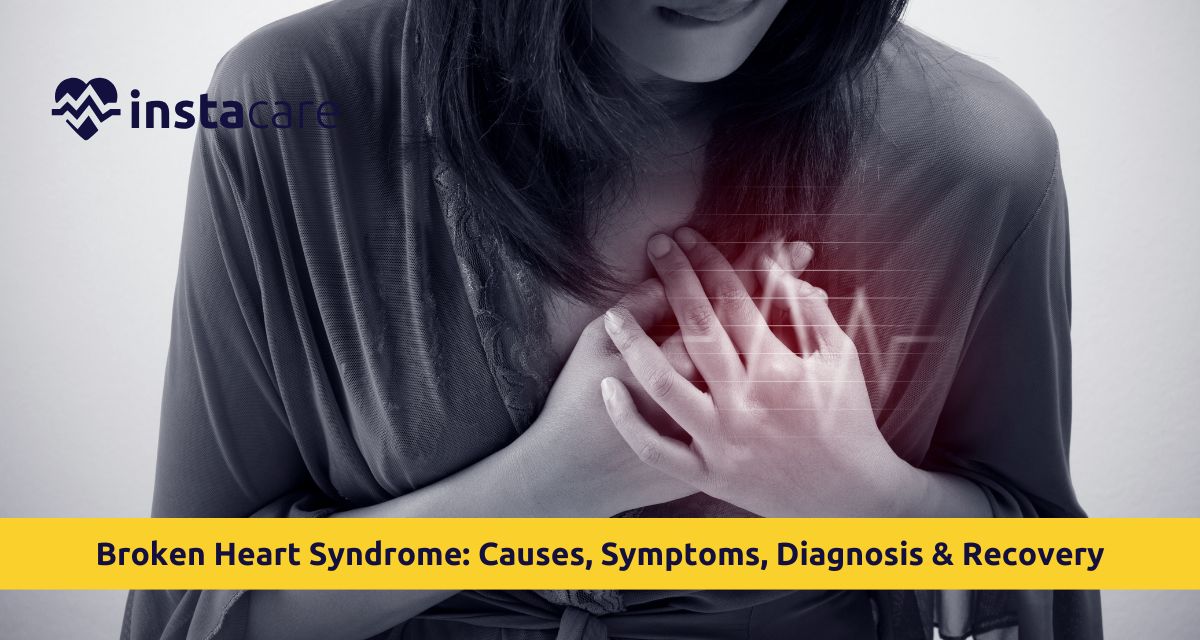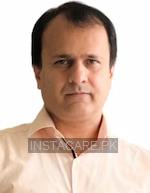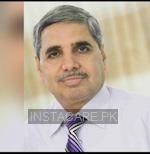This reversible heart condition known as Broken Heart Syndrome, or Takotsubo Cardiomyopathy, or Cardiomyopathy due to stress, occurs where there is overwhelming physical or emotional stress. Like a heart attack, sudden onset, chest pain, shortness of breath, abnormal heart rhythm, but within the heart, no artery blockage. The symptom is frightening however, even though it is a reversible condition with immediate medical treatment. Most often found in old women who are going through emotional storms like sadness or fear, the syndrome has along with it the correlation of heart and mind sickness.
What is Broken Heart Syndrome?
Definition and Full Form
Broken Heart Syndrome, or more properly called Takotsubo Cardiomyopathy, was named by using the Japanese term for the octopus trap pot "takotsubo," as its name is a recall of the shape the heart assumes in the syndrome. Broken Heart Syndrome and Stress Cardiomyopathy are other names for it. Broken Heart Syndrome temporarily weakens the heart's largest pumping chamber (left ventricle).
During a
heart attack, sudden release of stress hormones like adrenaline that soften the heart muscle and prevent its normal pumping action. The left ventricle becomes hypertrophied and causes delayed circulation and a symptom resembling heart attack, without any obstruction of the arteries.
Brief History
First identified in Japan in the mid-1990s, Takotsubo Cardiomyopathy has attracted world attention due to its ability to cause recurrent cardiac events even though the effects are reversible. It is said to be responsible for roughly 1–2% of all reported heart attacks.
Causes and Precipitants of Broken Heart Syndrome
Following are the Causes of broken heart syndrome:
Emotional Precipitants
Broken Heart Syndrome is typically precipitated by events that cause intense emotional distress:
- Loss of loved one – grief severs the heart.
- Break-up or divorce – distress is bodily disturbing.
- Financial crisis or loss of job – stress from abruptly vulnerable situations.
- Extreme fear or humiliation – the body's fight-or-flight response hijacks the system.
- Domestic violence or family conflict – chronic emotional stress deranges heart rhythm.
These stresses trigger the "fight-or-flight" response, releasing stress hormones into the body to possibly shock the heart muscle.
Physical Triggers
Less frequent, immediate physical stress can also induce the syndrome:
- Severe disease such as asthma, worsening of COPD, or sepsis.
- Major surgery or anesthesiology causing body trauma.
- Neurologic events such as stroke or seizure.
- Physical trauma such as trauma or overuse.
Hormonal & Nervous System Impact
The autonomic nervous system, responsible for automatic body function, is put into overdrive during acute stress, increasing stress hormones. Postmenopausal women appear to be at higher risk, which means that there is a protective effect of estrogen that is lost when menopause is reached.
Basic Risk Factors
There are a few other Risk factors for broken heart syndrome that increase vulnerability:
- Anxiety or depression—ongoing emotional tension.
- History of attacks—probability of recurrence.
- Chronic diseases—draining general fitness.
- Smoking or drug addiction—decreasing heart resistance.
Read More: How To Get Rid Of Heart Pain At Home
Different Symptoms to Look Out For Broken Heart Syndrome
The following are the Symptoms of broken heart syndrome:
Chest tightness or pain
A telltale symptom: abrupt, sometimes crushing or squeezing pain or discomfort in the chest. It spreads to the arms, neck, back, or jaw, and can literally feel like a heart attack.
Shortness of Breath
Suddenly short of breath, even at rest, due to the left ventricle's inability to compensate, resulting in fluid buildup inside the lungs.
Irregular Heartbeat (Arrhythmias)
Palpitations, tachycardia, or skipped beats are experienced with the syndrome. It is terrifying and justifies emergency room admissions.
Dizziness and Fatigue
Weakness, dizziness, or syncope may be brought on by impaired pacemaker function and hypotension with reduced cardiac output.
Sweating, Nausea, and Anxiety
Nausea, cold sweats, or panic attacks, whirling mental and physical torture, are experienced by the majority of patients.
Emotional Confusion
Patients typically describe a panicky, confused, or overwhelmed feeling either before or during symptoms, highlighting the psychological aspect of this cardiomyopathy.
Treatment of Broken Heart Syndrome
Some of the Broken heart syndrome treatment are as follows:
Initial Emergency Response
Since the symptoms may manifest as though a heart attack, emergency action is initiated immediately:
- ECG changes in broken heart syndrome(Electrocardiogram) to check heart rhythm.
- Blood tests to check cardiac enzymes.
- Chest X-ray or CT scan to rule out other causes.
- Coronary angiogram to check for no blockage in arteries.
Medication Treatment
Supportive medications allow healing
- Beta-blockers to shield the heart from stress hormones.
- ACE inhibitors or ARBs for enhanced heart function and pressure reduction.
- Diuretics in case of fluid overload.
- Low-dose aspirin for a short term.
Oxygen Therapy & ICU Monitoring
Some patients are given oxygen and intensive care unit monitoring for arrhythmia, blood pressure, and heart function.
Stress & Mental Health Support
For Broken heart syndrome recovery in the long run:
- Psychotherapy or psychiatric counseling for anxiety or bereavement.
- Reduction of stress can include mindfulness, diaphragmatic respiration, meditation, or support groups.
- Family support to reduce emotional trauma.
Lifestyle and Diet
Patients should:
- Eat a heart-healthy diet with abundant fruits, vegetables, and whole grains.
- Engage in gentle exercise, like walking or stretching.
- Not smoke, abuse caffeine, or consume alcohol.
- Achieve proper rest and relaxation.
What Includes Recovery of Broken Heart Syndrome?
Recovery Timeline
Most recover within a few days. Normal cardiac function usually takes 4 to 6 weeks of complete recovery. In some instances, the symptoms persist a little bit longer.
Follow-Up Care
- Serial echocardiograms to check left ventricle functioning.
- ECG monitoring to monitor rhythm normalisation.
- Blood tests to verify enzyme level and improvement.
- Stress test in event of failure to improve or persistent poor heart functioning.
Medication Review
Physicians can withdraw or stop beta-blockers or ACE inhibitors once the heart has regained normalcy but can maintain low-dose therapy to avert recurrence.
Emotional Recovery Over the Years
Support group attendance or maintenance therapy helps in emotional recovery. Mind-body treatments like
yoga, tai chi, or guided relaxation enhance resilience.
Prevention of Recurrence
Recurrence is rare (5-10%), and the following are strategies for preventing recurrence:
- Long-term stress-management habits.
- Maintenance emotional counseling.
- Awareness and prompt reaction to subsequent stress stimuli.
- Welding of good lifestyle.
Conclusion
Stress-induced cardiomyopathy, or Broken Heart Syndrome, lays bare the essential interplay between feelings and cardiovascular well-being. Panicked and often confused with heart attacks, its cause is not narrowed vessels but releases of Sudden emotional stress and heart hormones. The silver lining is that nearly all patients get back to full health with good medical and emotional care.
Please book an appointment with the
best Cardiologist in Lahore, Karachi, Islamabad, and all major cities of Pakistan through
InstaCare, or call our helpline at 03171777509 to find a verified doctor for your disease.










